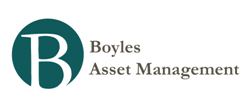Excerpts from Dylan Grice's latest piece
And here enters a wistful historical counterfactual: how different might history have been if the Germans had inflated their economy when the crisis broke? It's impossible to say, of course. By 1931 the world was in depression. Germany would have been too, with or without its pathological fear of inflation. The Nazis would presumably have made the same electoral gains. But suppose Germany had inflated in 1931, like the U.K. did. The following chart compares the trajectory of the U.K. unemployment rate after it had left the gold standard with that of Germany, who stayed on.
After leaving the gold standard, the U.K. saw its unemployment rate decline by about a third from 1931 to 1933, while Germany's rose significantly over the same period. If Germany had been willing to follow the U.K. in inflating, and its unemployment rate had followed a similar trajectory, it would have stood at 17% rather than 33%. Would this have averted what followed? Would Hitler have won that March 1933 election with 45% of the vote? Would the world have experienced the evils of the Nazis in power? World history might have been very different. There might not even be a euro today, let alone a euro crisis.
…
So even a hard money libertarian like me can see that there have been times in history when creating inflation would have been the right thing to do. Germany today has to decide if now is one of those times.
Europe's crisis today is orders of magnitude smaller than that in the early 1930s. The stakes are much lower today than they were then. But they are not low. And, just as it might have done in the 1930s, flexibility on hard money principles might help turn the tide. ECB involvement cannot solve the underlying problems of the eurozone economies, which are anti- entrepreneurial and too heavily regulated. But it will buy time with which to address these problems and so allow eurozone policy makers to get ahead of the panic for now.
- Beijing’s New Leaders Are Right To Hold Back - By Michael Pettis
The world is struggling to rebalance its great savings imbalances and is not advancing much. In Europe, and as I discussed in my very long May 11 blog entry, it seems that Germany is still unable to force though the adjustments needed in internal demand...
- Book Tv: Lords Of Finance: The Bankers Who Broke The World
This interview is from 2009. Liaquat Ahamed presents in his book, Lords of Finance: The Bankers Who Broke the World that four of the world's central bankers attempted to rebuild the global economy following World War I but instead contributed to the...
- Leaving The Hotel Euro? – By Steve Keen
So if Europe’s leaders could just take a step back and realise that their currency isn’t really a currency, they could perhaps convert it into what it most closely resembles – a European SDR – and reduce at least the government-mandated part of...
- Satyajit Das: Why Germany Can't Bail Out Europe
Germany is indirectly exposed through its support of various official institutions like the European Union (EU), the European Central Bank (ECB), the International Monetary Fund (IMF) and special bail-out funds. As of April 2012, the exposure of ECB alone...
- Germany’s Eurozone Trilemma - By Edward Chancellor
Economists have bigger brains than ordinary mortals. Whereas most people are flummoxed by dilemmas, economists wrestle with trilemmas. Nobel laureates Robert Mundell and Marcus Fleming, for instance, famously observed that it was impossible for a country...

